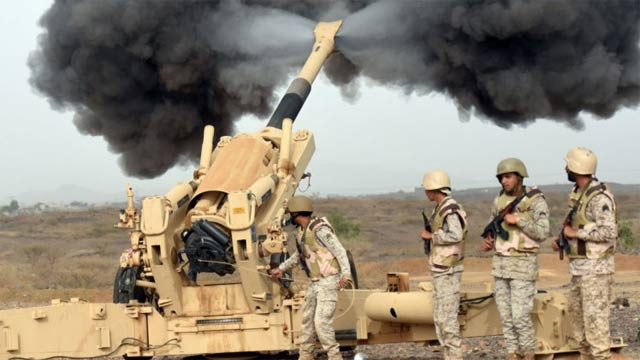
If Pakistan showed reluctance over joining the coalition, it was because it may be weighing its options. Sovereign states protect their own interests, and other states or non-state partners must understand a state’s sensitivity. Certainly, this is what a former senior military officer once said regarding the Taliban — they did not understand that times had changed and Pakistan could not support them on the course of action they had followed for over two decades. Some of the Taliban rebelled and not just because they didn’t understand English. They were angry and perplexed on being abandoned, especially after being used for a strategic purpose. Mustafa Hamid, one of the first Arabs to come and fight in Afghanistan against Soviet troops, highlights how the Pakistani state kept the temperature under control during the Afghan war to its own taste rather than anyone else’s. Contrary to popular perception, according to Hamid’s account, General Ziaul Haq was not generous in letting Arabs come to Afghanistan, especially via Pakistan.
Saudi-led coalition: Pakistan won’t support moves against Syria, Iran, says officials
In a similar vein, the Saudis might now be perplexed on how a state that happily played the role of Riyadh’s client for decades is now reluctant to deliver. Didn’t the Saudis pay $500 million for the 40 F-16s Pakistan procured from Washington as part of the first aid package during the early 1980s? In fact, the Saudi Arabia-Pakistan relationship is that of a patron-client one, almost in a feudal/tribal sense. The patron provides for strategic needs in return for loyalty and willingness of the client to protect the patron. For years, Islamabad was committed to providing security for Saudi Arabia. A military unit has been stationed there for long for training and other purposes. Even when Pakistan was unwilling to join an American alignment to attack Iraq in 1990, it committed to provide security for Riyadh.
Again, in a very feudal sense, the patron becomes an arbiter to resolve internal matters of the client. Thus, over the years, the Pakistani public has become used to seeing its leadership run to Riyadh for domestic arbitration. While the American patronage is obvious and criticised profusely, no one has in years examined or criticised how Saudi Arabia is used as a point for mediation amongst power players in Pakistan.
Pakistan’s stakes in Saudi-sponsored coalition
But it is possible that, unlike a few months ago when the Saudis were unhappy on Pakistan’s refusal to commit troops in Yemen, they now understand our sensitivities and will give an opportunity to Pakistan to operate within its own comfort zone. Reportedly, the visits of the prime minister and army chief helped in thrashing out an understanding and arrangement, which made the Saudis comfortable. While there was a lot of anxiety about Pakistan soon after its aforementioned refusal, now the perception remains positive.
The 34 states that form part of the coalition are either ideologically committed to Riyadh or are part of its extended clientele. Apparently, the focus is on fighting terrorism in states like Iraq, Egypt, Syria, Libya and Afghanistan. There are two dimensions of the plan. The first is to develop the capacity to fight the threat from the Islamic State (IS) that is increasing in most of these states. The threat, particularly for Saudi Arabia, has increased at a time when the Middle East is in a state of meltdown. The states in Iraq, Syria and Libya are sick to the point of being non-existent. Under the circumstances, the IS has a lot of traction around the world. There is the larger issue of the lack of legitimacy of states almost all over the Muslim world. The youth, who seem to be attracted to the IS, believe that the current ruling elite ought to be removed to establish a system that they like to think of as Islamic, which will restore the credibility of both state and society. Nevertheless, it is a complex battle as most of the Middle East is now getting increasingly divided on sectarian lines.
Riyadh, which is equally threatened, needs reliable clients. Amongst the 34 coalition members, there are few that are militarily capable states. More than the Egyptians or the Turks, Pakistan’s military tops the list in terms of both commitment and capacity. The kingdom needs a group that is committed to secure it, especially at a time when its funds are running low.
The second angle for the coalition is more political. It is about managing perceptions regarding Saudi Arabia’s own role in creating this kind of militancy. Since the Paris attack, fingers are being pointed at Riyadh for encouraging an ideology that breeds violence. The kingdom is fighting back to change world opinion about itself. Minor acts like giving women the right to vote in local elections, which does not really mean much, may be part of the same plan. One wonders if there is indeed a deep plan to transform socially. The regime would like to maintain its legitimacy through its links with religious clerics and the right wing. But this does not mean that it will allow the right wing to grow to threatening levels as happened in 1979.
Saudi-led anti-terror coalition: No decision yet on contributing troops, says Aziz
The question for Pakistan is how much does it want to be a part of a coalition that aims to stop the impending meltdown, especially with there being a similar situation developing in its neighbourhood.
Published in The Express Tribune, December 24th, 2015.
Like Opinion & Editorial on Facebook, follow @ETOpEd on Twitter to receive all updates on all our daily pieces.











COMMENTS (16)
Comments are moderated and generally will be posted if they are on-topic and not abusive.
For more information, please see our Comments FAQ